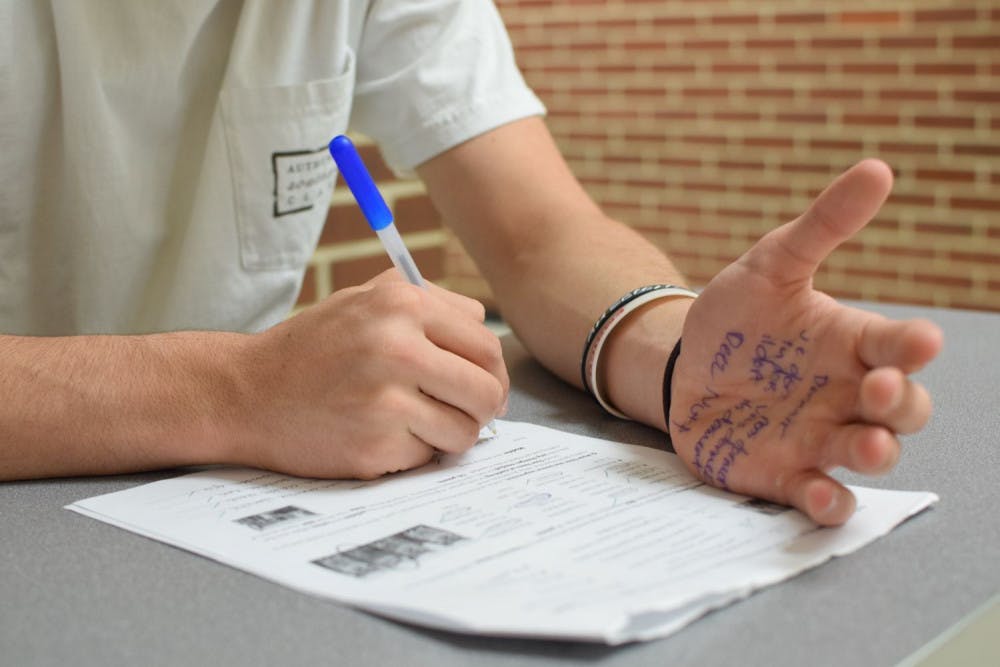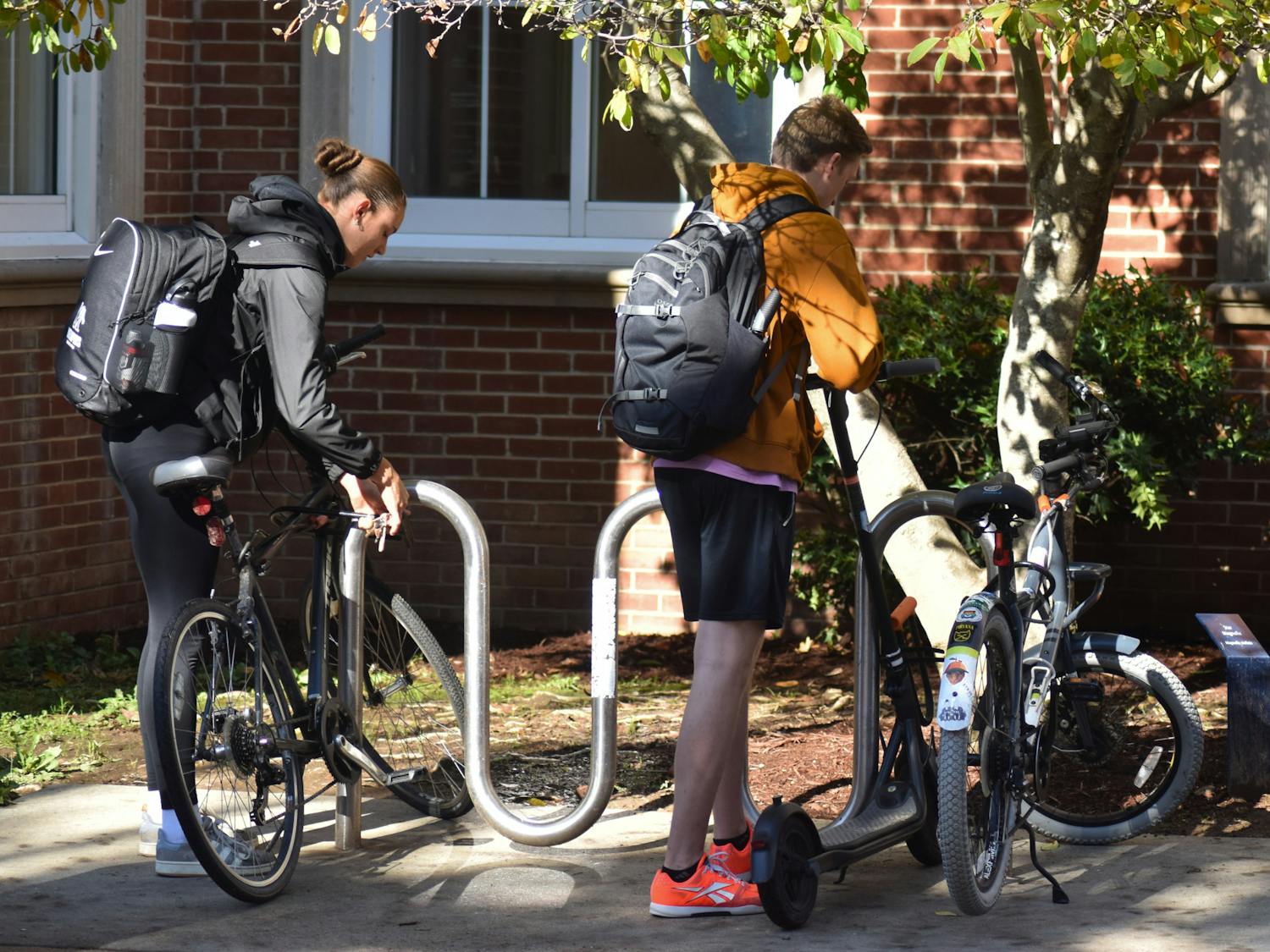
According to a study in Ethics and Behavior, 82 percent of college alumni said they cheated as an undergraduate student—whether it be on a test, quiz or even just homework—to pass certain classes.
Defeat the cheat – easier said than done for most students. Imagine it’s the day of a major test, and you completely forgot about it.
You went out for drinks the night before, or maybe you just slept the whole night through. Either way, you didn’t study.
You have 45 minutes to complete the exam.
The clock is ticking. Your professor’s eyes are lost in his or her computer. What do you do? Is your answer A, B, C or cheat?
“It gets tough being in college,†Robert Stills, a junior biology major, said. “I have always taken 12 to 15 class credits each semester, on top of being involved with many different activities. There were times where I literally didn’t have time to study and had rather cheat than take a failing grade.â€
Stills isn’t alone. In fact, a 2009 study in Ethics and Behavior found that 82 percent of recent college alumni cheated in some way during their undergrad years.
Riyon Barlow, an alumna of Jackson State University, who asked not to be identified by her real name, said she always cheated in college.
“I had no problem cheating in my general education classes because they served no purpose for me,†said Barlow. “They were not related to my major or choice of career.â€
Barlow said she only began to really study once she got into her major classes. She said she felt compelled to learn that set of material because she would be using it every day of her career.
“As students, we get cheated out of our money all the time,†Barlow said. “Schools hire unqualified professors that can’t teach. So why can’t we cheat them the way that they cheat us?â€
To the contrary, Jay Scanlan, 59-year-old alumnus of Delgado College, said as a student, he didn’t believe in cheating.
“I’ve always been an honest person, which is why I didn’t cheat in college,†Scanlan said. “Besides, I never had to because I actually studied.â€
Scanlan said studying “kick started†his brain. He said it was something he enjoyed doing because it kept him on his toes and ahead of the game.
Some students would feel guilty about cheating on tests but think nothing of cheating on homework.
“There was a class where me and a group of students would always get together and exchange answers to the homework,†Lenita Bobo, alumna of Florida State University, said.
Bobo said this took place at local restaurants where she and the students would meet. While dining, they passed more than just bread — they passed papers, too.
“The class was super hard,†Bobo said. “We were each other’s support system.â€
“More and more students are using technology to cheat nowadays,†professor Mark Harris of Southwest Tennessee Community College said. “Most of them are just lazy and would like their grade handed to them instead of actually earning it.â€
He said he’s experienced students who have plagiarized from the Internet and used phones during tests.
“A part of the issue is the lack of awareness from professors,†Harris said. “Some of them never care to be attentive of what is going on in their classrooms.â€
Harris said a professor should always enforce the school’s rules about cheating.
If they don’t, they will aid in a student’s belief that he or she can cheat their way through life.
“Some students may very well get away with cheating,†Harris said. “But in the end, they’re only cheating themselves.â€






